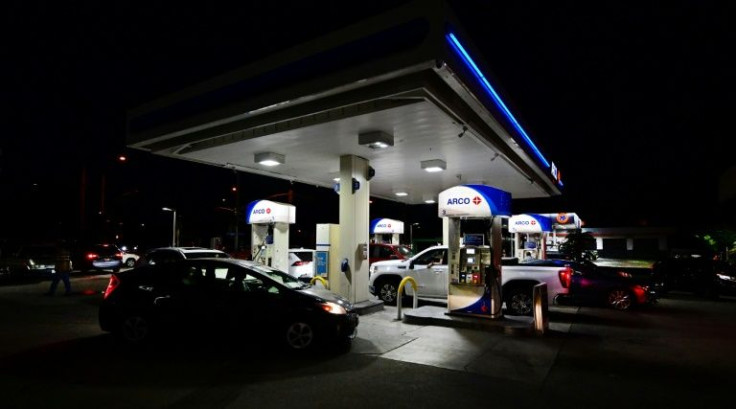US Gas Prices Could Spike 50%, Oil Hit $150 If Russian Crude Cannot Be Replaced: Analyst
KEY POINTS
- Supply shortage from the Russian oil and gas ban could push gas prices up 50%: Neal Dingmann
- Already tight supplies make it difficult to find alternatives for Russian oil
- Pandemic-shuttered refineries in the U.S. yet to get back into business
The pain that Americans are feeling from the efforts by President Joe Biden to punish Russia and Vladimir Putin for the invasion of Ukraine may only get worse, an energy analyst has warned.
Gas prices in the U.S. can shoot up by a whopping 50% if the United States fails to find an alternative source for the Russian oil that the West's sanctions are keeping out of the market, Neal Dingmann, managing director of energy research at Truist Securities, said. It may mean the decline in prices at the pump in the last few weeks may be short-lived, and that western sanctions on Russia may just be at the point of inflicting more pain on people and businesses in America and Europe than on Russia.
Speaking with Yahoo Finance Live on Tuesday, Dingmann said the supply shortages resulting from the sanctions on Russian oil could trigger a massive spike in crude oil prices to “well over $150” a barrel. Oil edged up Wednesday, a day after it fell through $100 a barrel for the first time since April.
Russia is a major global producer of fossil fuels, and worries about the inability to find oil to replace its production amid already tight supply, have put significant upward pressure on prices. The situation has been made worse by crippling U.S. sanctions on Iran and Venezuela, which have kept oil from the these two major producers also out of the global market.
Dingmann said gas prices in the U.S. could rise “potentially 50%” as he believes much of the price situation “is going back to Russia.” He added that the U.S. will possibly “see supply upended, if not at the end of the year, if not before. I think that has the potential to cause oil prices to even spike higher than what we just saw a couple of months ago.”
Oil prices could spike 'well over $150' a barrel: Energy analyst says https://t.co/6C1824MfDV by @RebeccaChenP pic.twitter.com/czeAJtCyGn
— Yahoo Finance (@YahooFinance) July 12, 2022
Russia supplied 8% of the total U.S. market’s natural gas last year. Dingmann said the U.S. “certainly” doesn’t have the capacity to expand its domestic oil production, and other OPEC+ members also couldn’t produce adequate supply. In March, a few weeks after Russia invaded Ukraine, the White House banned imports of Russian oil, liquefied natural gas and coal to the U.S.
President Joe Biden, on a visit to the Mideast, is expected to urge Riyadh to increase production, but Dingmann insisted that Saudi Arabia and other OPEC+ member nations “don’t have the capacity” to raise produciton, noting that they were given “allowances to produce more and they basically say we’re going to stay constrained for various reasons.” Last year, Saudi Arabia supplied 5% of the U.S. market’s natural gas.
28 straight days that #gasprices have declined, the national average now $4.66/gal, Americans today will spend $142 million less on gasoline than on June 14.
— Patrick De Haan ⛽️📊 (@GasBuddyGuy) July 12, 2022
On Tuesday, the national average of gas prices fell to $4.66 per gallon, marking a 28-day consecutive decline. While states like Nevada and Oregon have settled at about $5 or more per gallon, California lags behind with state average prices above $6 a gallon.
While gas prices have been declining, the numbers are still high compared to last year’s prices. Also, some experts have said refining capacity shortage in the U.S. is unlikely to get back on track soon as some refineries that shut down during the pandemic over a lack of gasoline demand have yet to restart production.

© Copyright IBTimes 2025. All rights reserved.





















